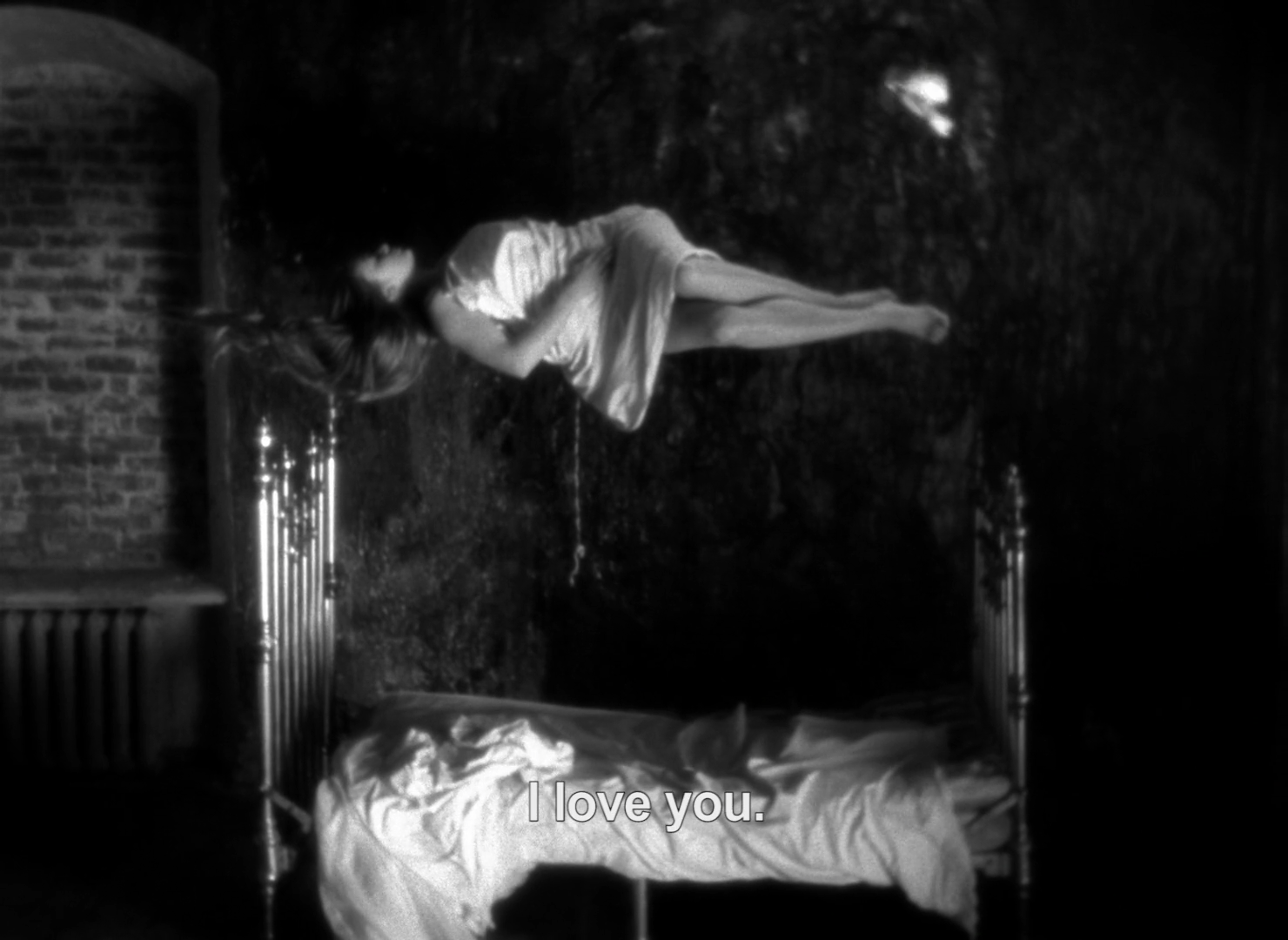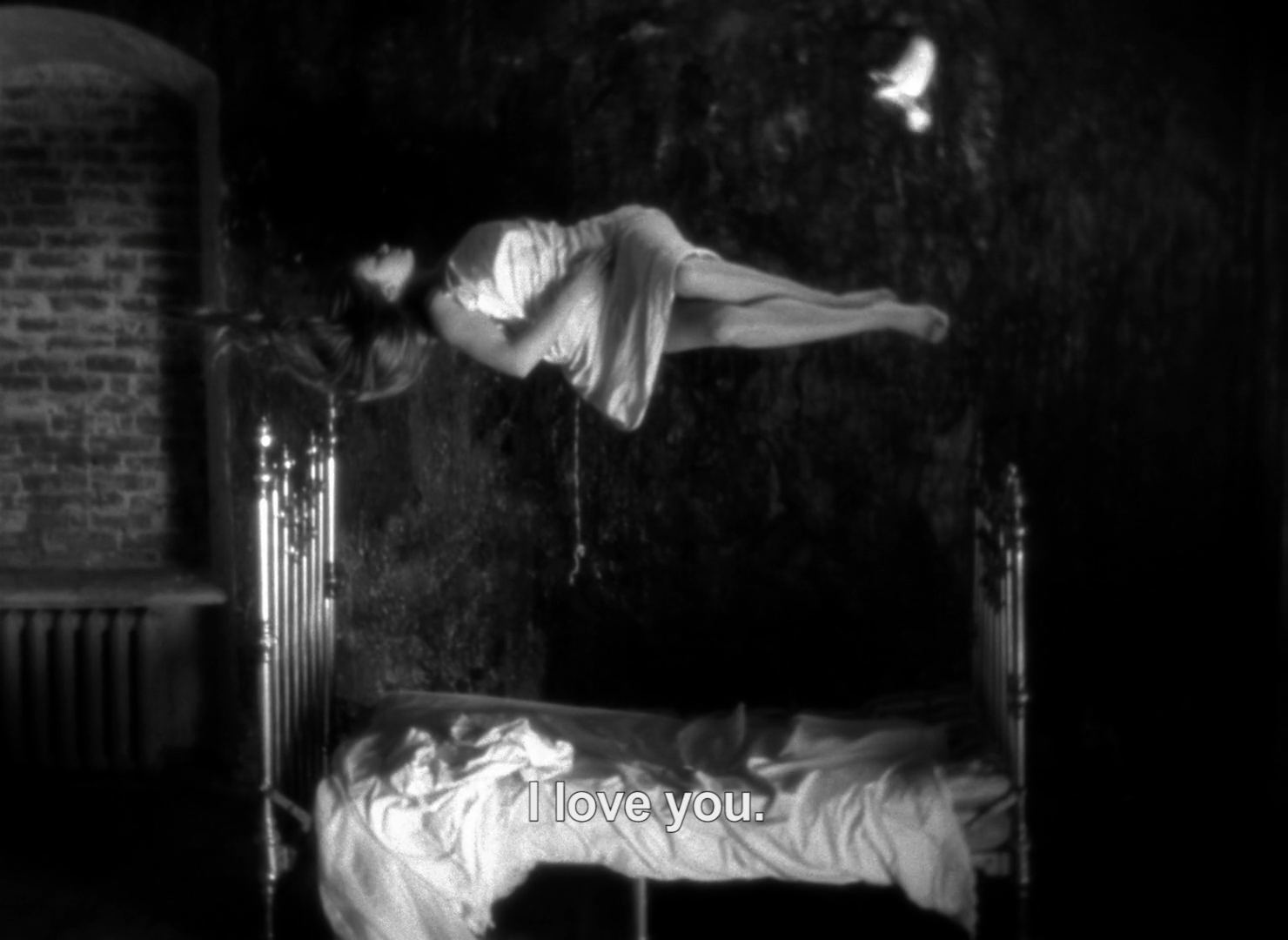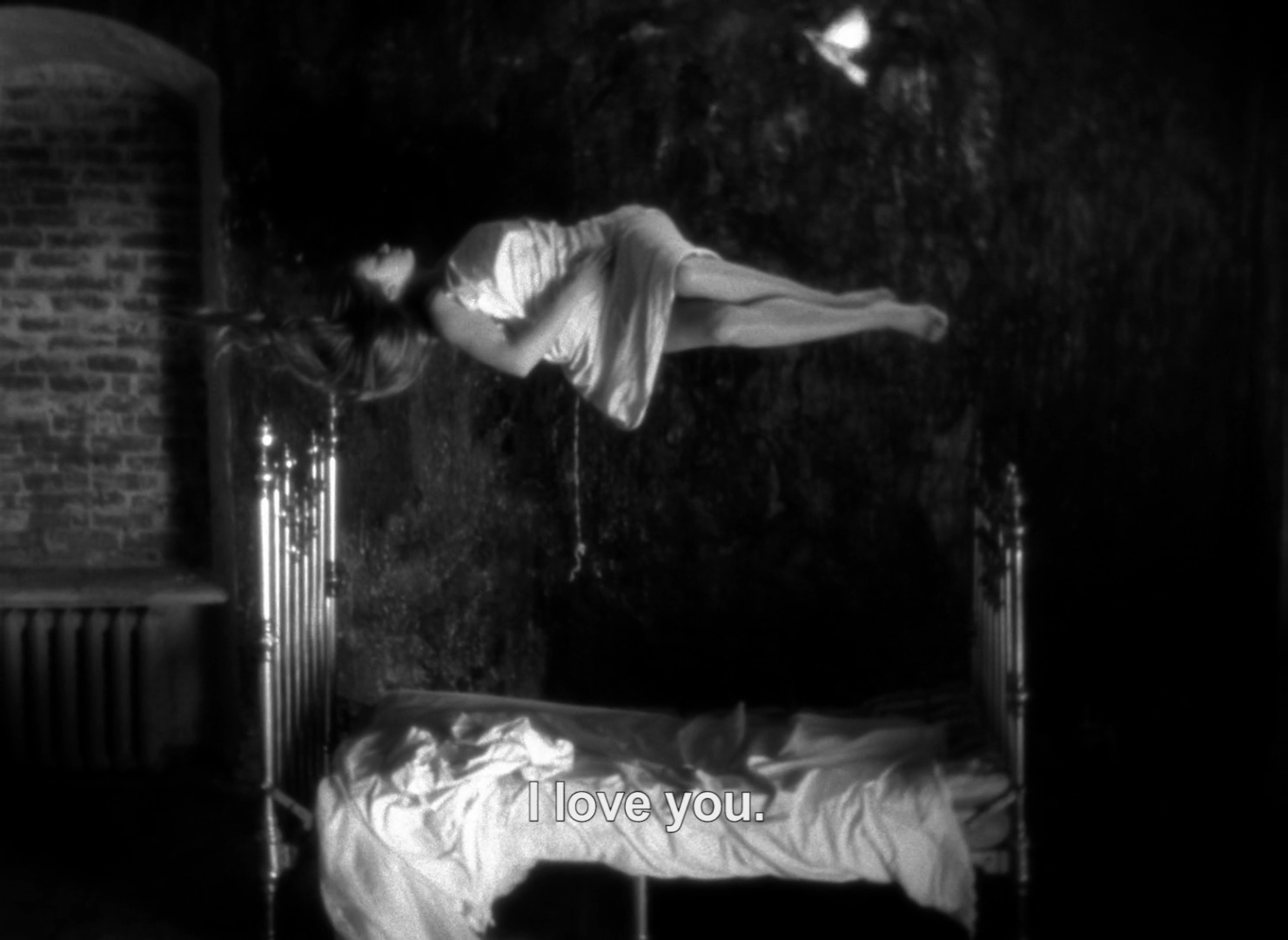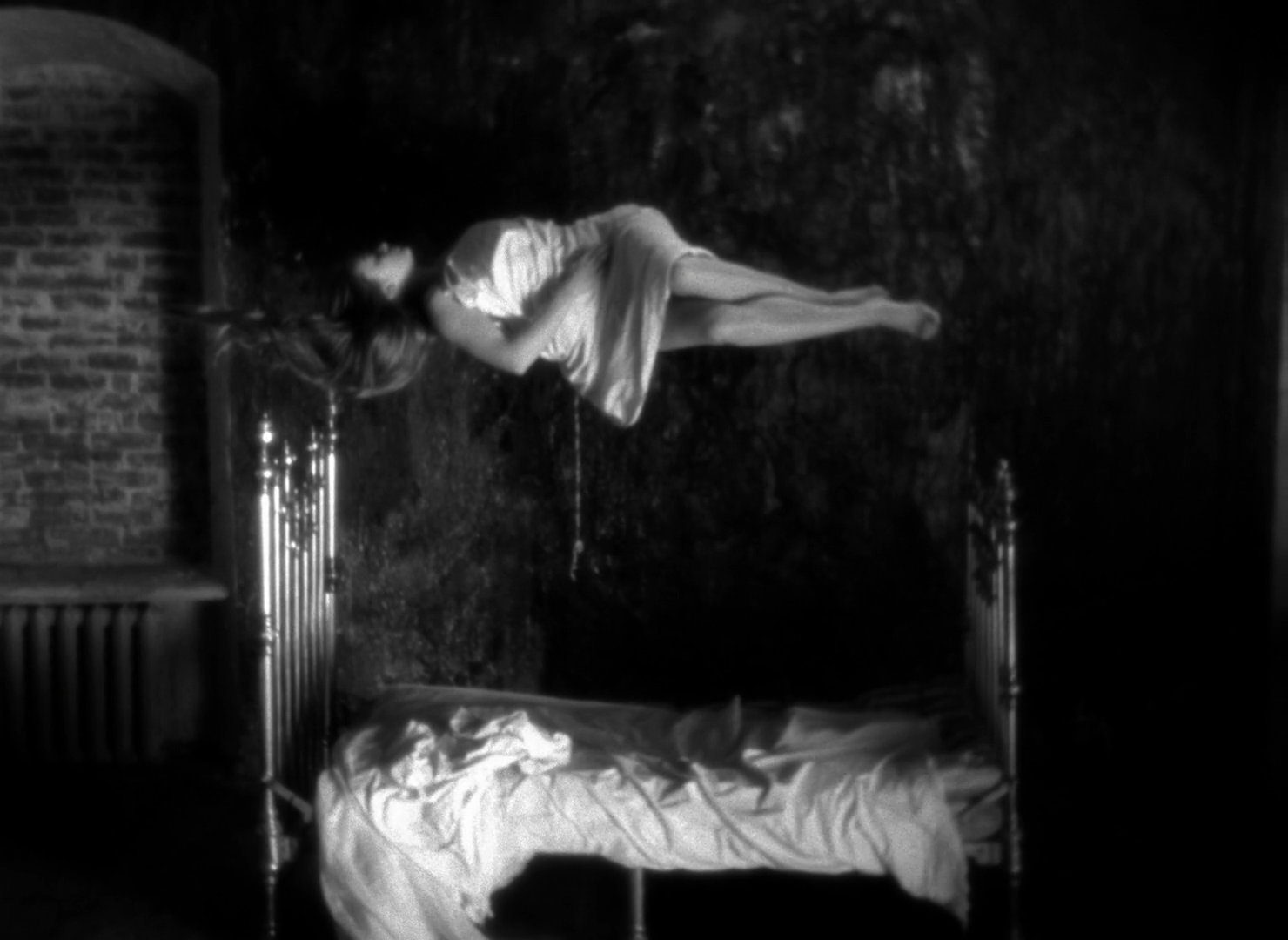Mirror, directed by Andrei Tarkovsky, screenplay by Andrei Tarkovsky and Aleksandr Misharin, cinematography by Georgi Rerberg, music by Eduard Artemev, and edit by Lyudmila Feyginova.
“Why do I so frequently include a levitation scene, a body rising up? Simply because the scene has a great power. This way things can be created that are more cinematic, more photogenic. When I imagine a person suspended in mid-air, it pleases me. I find myself filled with emotion. If some fool asks me why in my last film people float up in the air, I would say: ‘It’s magic.’ If the same question came from someone with a more acute intelligence and poetic sensibility, I would respond that for these characters love was not the same thing as it was for the author of Betty Blue. For me, love is the supreme manifestation of mutual understanding, and this can not be represented by the sexual act. Everybody says that if there is no ‘love’ in a film, it is because of censorship. In reality it is not ‘love’ that’s shown on screen but the sexual act. The sexual act is for everyone, for every couple, something unique. When it is put into films, it’s the opposite.” Love for Tarkovsky brings meaning to our human existence. The act of love in his films go beyond the sexual act, and hence, he restrains from depicting the physicality of the sex scene and utilizes levitation scenes as poetic expressions of love. True lovemaking is levitating. True love defies gravity.



